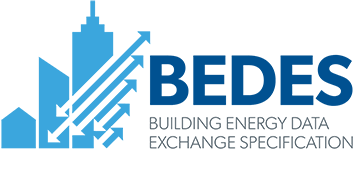Version 2.6
| Term | Term Definition | Options | Unit of Measure |
|---|---|---|---|
| Demand Ratchet Percentage |
Certain rate schedules incorporate demand ratchet percentage to ensure minimum billing demands based on historical peak demands. Billing demand in these cases is based comparing the month's demand and maximum of previous 11 month's demand times the demand ratchet percentage |
View | percent |
| Demand response | Load shedding initiated by the energy provider | View | None |
| Demand response or load management program incentive | These are programs that provide incentives to curtail demand during peak energy usage periods in response to system reliability or market conditions. Agencies can participate in state and utility incentive programs in order to reduce their energy usage and control their energy costs. | View | None |
| Demand Response Participation |
Demand response participation requires changes in electric usage by end-use customers from their normal consumption patterns in response to changes in the price of electricity over time, or to incentive payments designed to induce lower electricity use at times of high wholesale market prices or when system reliability is jeopardized. |
View | None |
| Demand window | View | None | |
| Density |
Mass per unit volume. |
View | lbs/ft3 |
| Department | Common unit abbreviation: Dept | View | None |
| Department of Buildings (DOB) Approved Agent | View | None | |
| Depressurization | Blower door depressurization test | View | None |
| Depth |
Dimension of the distance from the front to the back, such as the depth of structural framing in a wall or floor. It can also be the distance from the top to the bottom, such as the depth of a tank or pool of a component or material, such as the depth of the structural framing |
View | ft |
| Derivation Method |
The method by which the data was learned. |
View | None |
| Description |
A longer text description. |
View | None |
| Desiccant wheel | View | None | |
| Design | Setpoint qualifier for design conditions | View | None |
| Design ambient temperature | The ambient air temperature under design conditions. | View | None |
| Design development | Drawings for the site, building plans and elevations are further developed, along with drawings for building appearance, typical construction detail, and selection and specification of major building materials. Preliminary specifications for mechanical and electrical systems and their layouts is developed. Detailed energy analysis and energy modeling are used to evaluate envelope alternatives, mechanical systems types and initial sizing, and operational strategies. | View | None |
| Design files | From a design program (e.g. CAD/BIM files) | View | None |
| Design Static Pressure |
The design static pressure for the fan |
View | Pa |
| Design target | Intended to serve as a reference for comparing the actual value with a design value to evaluate relative performance | View | None |
| Design temperature difference | The difference between the condensing temperature of the refrigerant in the condenser and the design ambient temperature. | View | None |
| Desktop | A computer where the main unit is intended to be located in a permanent location, often on a desk or on the floor. Desktop computers are not designed for portability and utilize an external computer display, keyboard and mouse. Desktop computers are designed for a broad range of home and office applications, including point of sale applications. | View | None |
| Dessert | The sweet course eaten at the end of a meal or in between meals. | View | None |
| Desuperheater valve | The level of refrigerant superheater is controlled using a desuperheater valve. A refrigerant-to-water heat exchanger that transfers heat from high-pressure, high-temperature refrigerant to domestic water. Heat transfer occurs when the heat pump (air conditioner) operates to satisfy the building space conditioning load. Within the refrigeration circuit, the desuperheater is located between the compressor discharge and the reversing valve of a heat pump or between the compressor discharge and the inlet to the refrigerant-to-air condenser of an air conditioner. | View | None |
| Diameter |
Diameter of an object |
View | ft |
| Diesel | View | None |


